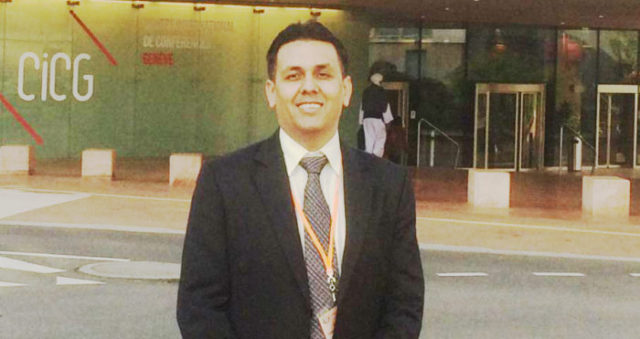Caring for a Loved One with Dementia: Struggles and expectations of caregiver

Caring for a loved one with dementia is both a deeply rewarding and incredibly challenging experience.
On World Alzheimer’s Day 2024, we want to shed light on the voices of those who shoulder the responsibility of caring for family members with Alzheimer’s or other forms of dementia.
These caregivers, often called the “silent heroes,” face struggles that are emotional, physical, and financial. Their perspective is vital to understanding how we can better care for those living with dementia, as well as those who care for them.
Struggle of Caregivers :
Caring for someone with dementia can be emotionally draining. Caregivers watch as their loved ones slowly lose pieces of themselves—their memories, personalities, and abilities. The person they knew and loved may become unrecognizable at times, and this can cause profound grief and emotional pain.
Many caregivers are responsible for assisting with daily activities such as bathing, dressing, eating, and medication management they have to get involved physically and mentally and all above activity. The day-to-day care can lead to exhaustion and burnout, especially as dementia progresses.
Financially, many families struggle with the costs associated with care. Whether it’s home care, medications, or the eventual need for a care facility, the financial burden can be overwhelming.
Most caregivers are family members who are not paid for their time, adding economic strain to an already difficult situation.
When speaking with caregivers, their ideas, concerns, and expectations for healthcare providers and society become clear.
Caregivers often wish for more community-based support, such as day programs where people with dementia can engage socially and caregivers can have a much-needed break.
Additionally, they advocate for greater education on dementia care—both for themselves and healthcare providers. Easy access to resources like memory care classes, or even online tutorials, could help caregivers feel more confident in managing symptoms at home.
Concerns of caregiver:
One of the biggest concerns is the emotional toll of caregiving. Many caregivers experience high levels of stress, anxiety, and even depression. There is a deep fear of burnout, and caregivers worry about their ability to continue providing the best possible care for their loved one. Another concern is the lack of respite care—opportunities for temporary relief. Caregivers need a break but often have no one to step in.
Expectations of care giver :
Caregivers expect empathy and understanding from healthcare providers. They hope for better communication, where doctors, nurses, and social workers listen to their concerns and understand their struggles. Many caregivers feel left out of the care process, wanting to be seen as partners in their loved one’s care. They expect more holistic care plans that take both the patient’s and the caregiver’s well-being into account.
Suggestions for Healthcare Providers :
On World Alzheimer’s Day 2024, caregivers of those with dementia offer some valuable suggestions for healthcare providers:
1. Recognize the Caregiver’s Role:
Healthcare professionals should understand that caregivers are an essential part of the care team. They need to be acknowledged, involved in decision-making, and given clear, simple instructions on managing dementia at home.
2. Provide Emotional Support:
Caregivers often feel isolated and emotionally drained. Regular check-ins from healthcare providers, counseling services, or support groups tailored for caregivers could make a huge difference.
3. Offer Practical Resources: Simple guides on how to manage daily challenges like aggression, wandering, or sleep issues can be incredibly helpful. Healthcare providers should offer these resources or direct caregivers to where they can find reliable information.
4. Expand Respite Care: Many caregivers simply need a break. Healthcare providers can advocate for more accessible and affordable respite care services, giving caregivers time to rest and recharge.
5. Simplify the System:
The healthcare system can be confusing to navigate, especially when dealing with multiple specialists, medications, and insurance issues. Streamlined processes, clear communication, and dedicated case managers could help caregivers feel less overwhelmed.
Finally, World Alzheimer’s Day 2024 is an opportunity for us to reflect on the struggles of both caregivers and patients.
Dementia affects more than just the person diagnosed—it affects families, friends, and entire communities. Healthcare providers have a crucial role in improving the lives of both patients and caregivers.
By listening to caregivers’ concerns, offering better support, and working together to ease the challenges of dementia care, we can create a more compassionate system for those living with dementia and provides the care and respect to both they and their caregivers deserve.
On this day, let us celebrate the effort of caregivers and advocate for the changes they need to continue their vital role in our society.
सम्पर्क इमेल : [email protected]
























